Meet Berea’s petite archive researcher who tells the
College’s story in a big way
As a little girl Sharyn Mitchell hated history because it was boring—it was all memorizing dates and didn’t pose any kind of challenge. But today, she is a research services specialist in Hutchins Library Special Collections & Archives. Mitchell spends most of her days digging through tangible pieces of history to tell the story of Berea College and its students from years gone by and making historical connections for often little-known events that surround Berea’s unique history and the people who contributed to it.
That little girl’s journey to become the historical excavator she is today was a lifetime in the making.
“Life took me to crazy places because I didn’t have a good focus,” Mitchell admitted. “If I get good at something, I’m ready to move on to the next thing; I’m ready for the next challenge.”
This crazy path gave her all the skills and fervor she needed to be the excellent researcher she has proven to be in Berea’s special collections and archives.
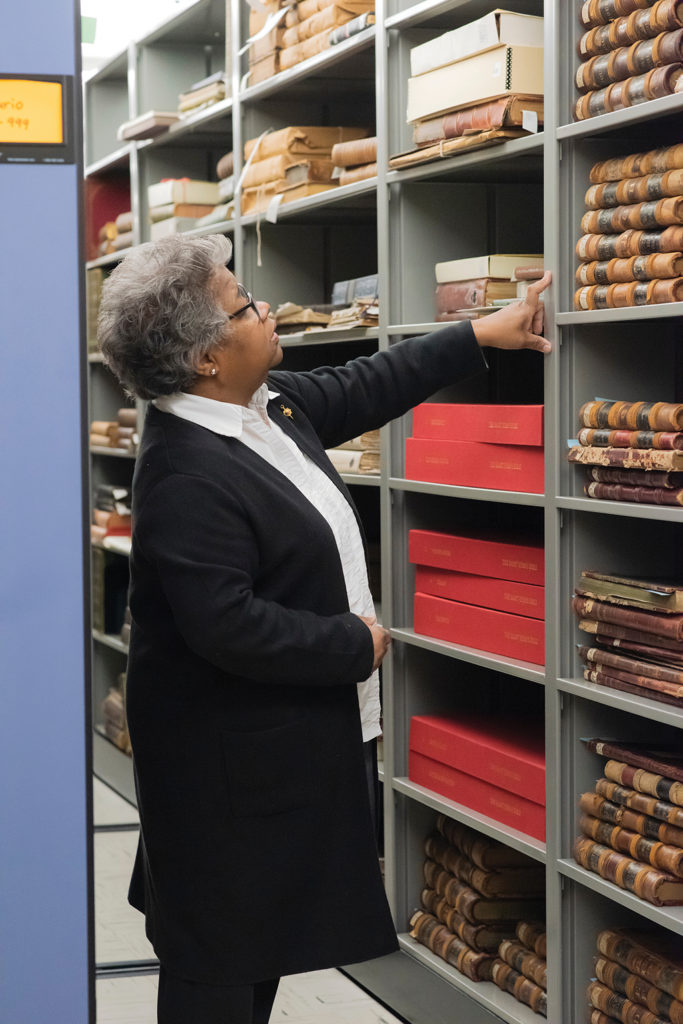
A self-proclaimed gypsy, Mitchell and her family have lived all over central Kentucky. They were living in Winchester when Mitchell started school in an all-Black, one-room school house. She comes from a family of teachers, so she could already read and write by the time she started school. She recalls her mama saying Mitchell was “teaching the teacher”—she wasn’t getting anything out of school there. Her grandmother, Mama Nancy, taught at Middletown School in Berea, so Mitchell’s mother decided to send her to Berea for school.
Every Monday morning, 5-year-old Mitchell would hug her mama and board a train from Winchester to Berea. The train, which ran right behind Middletown school, would arrive right around time for morning recess, and her grandmother would drive to the train station to collect her and bring her to school. And every Friday, they did the reverse.
Mitchell lived this cyclical life for two years before returning to Winchester to attend a newly opened integrated school where she and her sister and two other children were the only Black students in attendance. After only one semester there, they transitioned again to a city school in Lexington.
By the time she reached high school, Mitchell found her way back to Berea to attend the Foundation School and stayed to enroll at Berea College in 1965. Because she began first grade at only 5 years old, Mitchell recalls always feeling inferior around people in her grade because she was always younger.
“I get along better with older people than I do with my own generation,” Mitchell said. “So when you’re around older people, you hear their stories.”
The love of storytelling and taking the time to listen to others’ experiences is another mile marker along her journey to her career as a researcher of stories.
At the height of the Vietnam War, Mitchell decided to leave Berea College her sophomore year. Her boyfriend at the time joined the Air Force, but she was too young and too short—at only 4 feet 10¼ inches tall—she said, to follow suit. He went to Vietnam, and eventually the two married and moved to Ohio and had two children. But it wasn’t long before Mitchell yearned for a career. She dreamed of being a science librarian—partly because her mother had been a biology and chemistry teacher and partly because she had worked in the library at Berea all but one semester and loved the work.
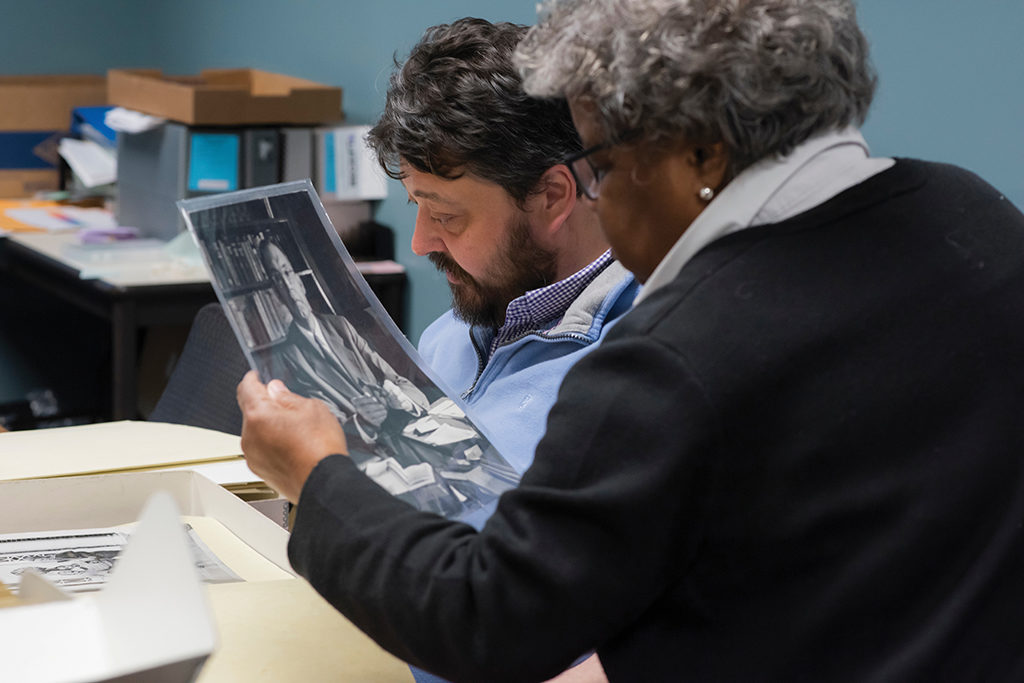
She completed her education at Kentucky State University, working numerous jobs to make ends meet and searching for a career she could love—all the while, picking up bits and pieces that would perfectly shape her for the career to come.
She worked at a radio station, she worked at the post office. She worked in the Social Security office as a claims rep, where she learned how to talk to people from all walks of life.
“I’ve never had a problem asking people questions,” Mitchell said. “I interviewed everyone from trash collectors to CEOs. Everyone gets to the Social Security office at some point.”
One of the jobs she had while working in Frankfort was going down into the vital statistics vault once a month and getting marriage and death certificates for people who requested them from out of state. In the vault, the records were kept chronologically and alphabetically. One day she found a birth certificate with race marked as White, and then marked out and changed to Colored, with a doctor’s note in the margin that said, “I’ll tell you about this one when I get to town.” Perplexed, Mitchell told her mother about the odd certificate with a familiar name.
“Momma said, ‘Everyone knows it was the insurance man who was the daddy,’” Mitchell recalled. “And that’s how I got into genealogy.”
Using a mess of sticky notes and random slips of paper, Mitchell learned to love researching Madison County families and found herself hunting around court houses, libraries and cemeteries.
She moved on to work with federal and state disability claims. Next, Mitchell and a friend decided to tackle the real estate business. She obtained her real estate and broker’s licenses and continued her research, looking at property deeds. Then, she moved on to work in a personnel office, before taking positions with Buffalo Trace Distillery and Jim Beam.
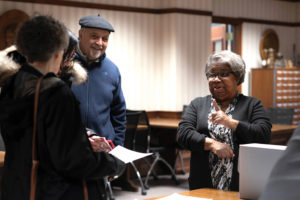
After Mitchell’s mother passed away in 1990, she rented out the family home for nearly 20 years. But in 2011, she and her husband decided to move into the house themselves. When her husband became ill, and she didn’t want to commute to Frankfort every day, she took a leap of faith, gave her notice and settled in back in Berea.
Mitchell found her way to campus any time she could, and one day, talking with Alicestyne Turley, director of Berea’s Carter G. Woodson Center for Interracial Education, Mitchell learned about a research position open in the library.
“I went right over from her office to HR and put in my application at 10 a.m., and by 2 p.m., I got a phone call scheduling an interview for Monday,” Mitchell said. “I interviewed Monday and had the job on Wednesday.”
The research position was supposed to last only a year, but has kept Mitchell busy for nearly seven years now.
“I’ve been prepared for this all my life because of all the jobs I’ve had,” Mitchell said. “It’s like if you have a jigsaw puzzle, and there is a piece of blue, and you think it’s sky, and then you walk in one day and realize it’s really water. And you turn it around differently and see how it fits.
Life is like that. When you see all the pieces, then it makes sense.”
So when people request information on a grandparent or someone who attended Berea College, Mitchell doesn’t just tell them, “Yes, they attended from this date to this date,” she looks for information about their labor position, the dorm they lived in, any clubs they were involved in.
“I call it putting the meat on the bones,” Mitchell said. “Not just dates, but where were they living, why did they do this or that and what did they look like? If you can put the meat on the bones, make the stories come to life and figure out what was going on in history, it all comes together and makes sense.”
Through her natural curiosity, love of research and making connections, Mitchell has helped innumerable people, campus departments, alumni families and community members track down fascinating information that they could not have gotten anywhere else.
“Life after Berea—I don’t know what that will be,” Mitchell said. “But the connections that I’m making here open up all these opportunities. Right now, I just want to get the Berea story out.”
Sharing History
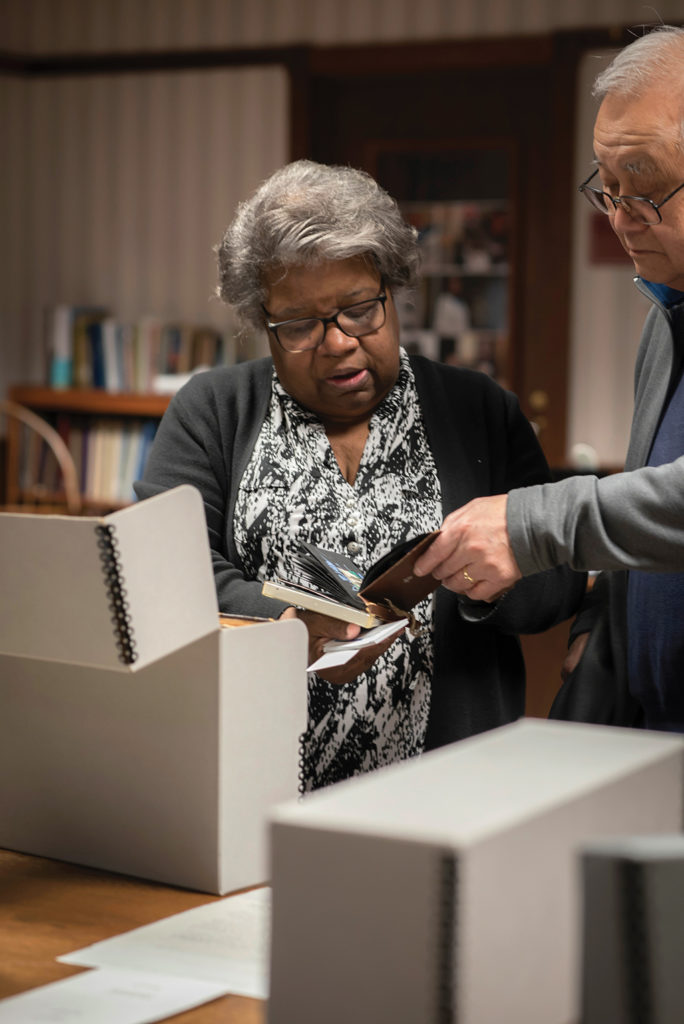
In 2011, Sharyn Mitchell headed up a research group called the African American Genealogy Group of Kentucky (AAGGKY). After spending years in libraries across central Kentucky researching African American history and genealogy, she connected with others who wanted to consistently share the fruits of their research. On the third Saturday of each month the AAGGKY meets at various places around Kentucky sharing findings, making connections and enjoying fellowship with like-minded individuals.
According to Mitchell, African American research is different. “Where you find the records is dicey,” Mitchell explained. “A lot of times Whites will say, ‘I am ashamed that my family had slaves.’ I reply, ‘But then our history is found in your books. It’s in your diaries and your wills. So the shame is if you don’t give it back and let us know where it is.’”
For more on a piece of Mitchell’s own genealogical findings, read about her research on George White


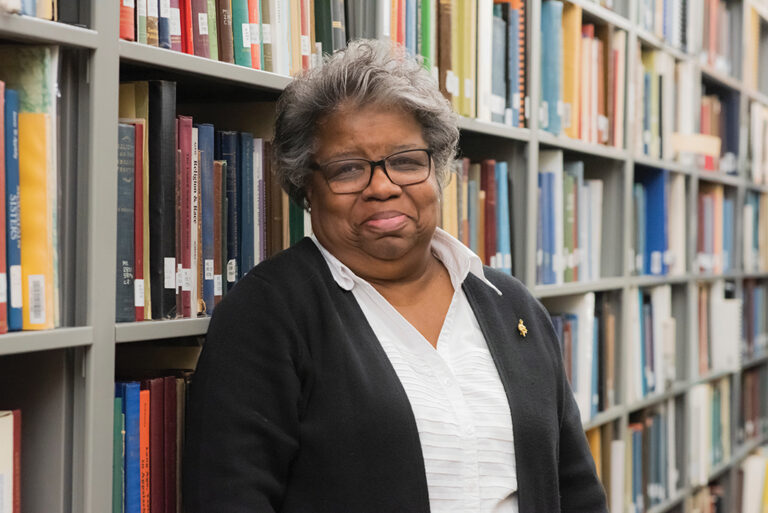
Berea College is just a great place and there are many unique individuals to emulate. A big hug to Sharyn Mitchell, I wish to meet you one of these days to carefully listen to the history of Berea.
I have been following the College for so long and I have admired many good things about Berea including the hardworking administration.
I can’t thank you enough for this post. It’s exactly what I was looking for and has helped me immensely. Your dedication to providing helpful content is truly commendable!
Thank you for this informative post! It has shed light on a topic I was struggling to understand. Your writing style is engaging and the information is presented clearly. Great job!
That was a treat to read, it was really nice that i found it in my work break